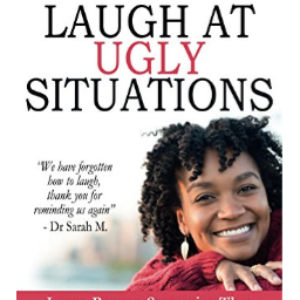TABLE OF CONTENTS
- Understanding Dishonesty & Deceit
- Reasons Why People Lie
- The Consequences of Lying
- Strategies to Avoid Lying
- Alternatives to Lying
- Real Life Examples of the Effects of Lying
From little white lies to full-blown scams, dishonesty and deceit can wreak havoc on our relationships, careers, and even our own self-worth. While we often think of lying as a harmless way to avoid conflict or get what we want, the truth is that it can have serious consequences for ourselves and those around us. We’ll explore why lying is one of the worst things you can do – not just morally but also practically – and how you can break free from the cycle of deception to live a more authentic life.
Understanding Dishonesty & Deceit
The ability to lie convincingly is a skill that takes years to master. The ramifications of being caught in a lie can be devastating, both personally and professionally. Dishonesty and deceit are two of the worst things you can do, and yet we all do it from time to time.
Why do we lie? There are many reasons, but most often it’s because we’re afraid of the truth. We might be afraid of how others will react if they know the truth, or we might be afraid of the consequences of telling the truth. Whatever the reason, lying is always wrong.
If you’re caught in a lie, the best thing you can do is admit it and take responsibility for your actions. Apologize to those you’ve hurt and try to make things right. Honesty may not always be easy, but it’s always the best policy.
Reasons Why People Lie
There are many reasons why people lie, but some of the most common reasons include:
-To avoid getting in trouble: This is especially common among children and teenagers, who may lie to their parents or teachers to avoid being punished.
-To protect someone else: People may lie to protect a friend or family member from getting in trouble.
-To make themselves look better: Some people may lie about their accomplishments or possessions in order to make themselves look more impressive to others.
-To avoid hurting someone’s feelings: White lies are often told in order to spare someone’s feelings, such as telling a friend that their new haircut looks great even if it doesn’t.
-To get what they want: People may lie in order to get something they want, such as a promotion at work or a bigger allowance from their parents.
The Consequences of Lying
Lying is one of the worst things you can do because it has consequences. When you lie, you are not being honest with yourself or with others. Lying can lead to problems in your personal relationships and at work. It can also lead to legal problems.
Strategies to Avoid Lying:
1. Be truthful with yourself first and foremost. If you can’t be honest with yourself, it will be difficult to be honest with others.
2. Consider the consequences of your actions. If you are considering lying, ask yourself if the potential benefits are worth the risk of being caught in a lie.
3. Communicate openly and honestly with others. When you’re open and honest with others, it creates an atmosphere of trust and respect.
4. Be aware of your body language. Your body language can give away whether or not you’re telling the truth.
5. Practice active listening. When you’re really listening to someone, it’s easier to tell when they’re not being truthful with you.
Alternatives to Lying
There are many alternatives to lying, and none of them involve deception or dishonesty. Some alternatives to lying include:
-Telling the truth: This is probably the most obvious alternative to lying, but it’s also the most difficult. Telling the truth can be hard, especially if it means admitting to something that you’re ashamed of or that will reflect poorly on you. But in the long run, telling the truth is always better than lying.
-Withholding information: Sometimes it’s not necessary to tell everything you know. If you’re not comfortable sharing something, you can simply withhold that information. This isn’t technically lying, and it can be a way to protect yourself or others without resorting to dishonesty.
-Being vague: Another alternative to lying is being vague or evasive in your answers. This isn’t necessarily dishonest, but it can be seen as such if you’re not careful. Be sure that you don’t give false information when being vague, or you could end up unintentionally deceiving someone.
-Changing the subject: If you don’t want to answer a question truthfully, one option is to simply change the subject. This won’t work every time, but it can be an effective way to avoid answering a difficult question honestly. Lying is always going to be tempting, but there are many alternatives to that.
Real Life Examples of the Effects of Lying
It’s no secret that lying is bad. But just how bad is it? Lying can have a number of negative effects on both the person who is doing the lying and the people who are being lied to. Here are some real life examples of the effects of lying:
1. Lying can damage relationships. When you lie to someone, you are breaking their trust. This can lead to arguments, resentment, and even breakups.
2. Lying can ruin your reputation. If you are caught in a lie, people will start to question your character and whether or not they can trust you. This can make it difficult to make new friends and do business with people.
3. Lying can lead to legal problems. If you lie on a resume or in a court of law, you could face serious penalties such as jail time or fines.
4. Lying can cause emotional distress. Guilt, shame, and anxiety are all common emotions felt by liars. This can lead to depression and other mental health issues.
5. Lying can be dangerous. If you lie about your health or safety, it could put yourself or others at risk. For example, if you tell someone that a dangerous animal is not harmful when it actually is, they could get hurt if they approach it.
Think About it…
Lying and deceit are traits we would all like to avoid, yet they seem to be becoming more commonplace in our everyday lives. It’s important that we recognize the harmful consequences of dishonesty and work hard to create an honest environment where truth is valued above all else. By doing so, we can ensure that our relationships remain strong and healthy, as well as creating a positive atmosphere around us. Remember: always tell the truth!







